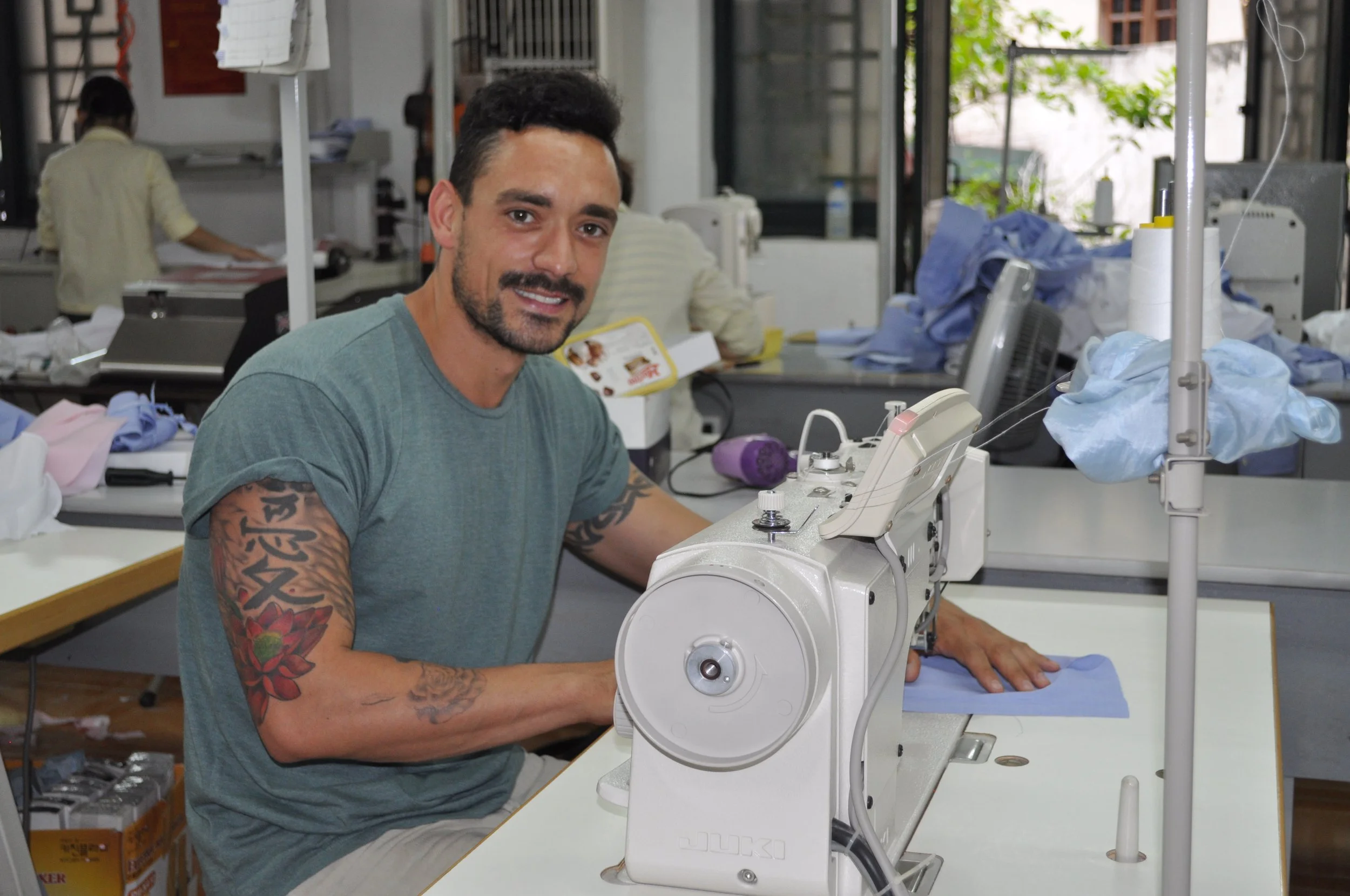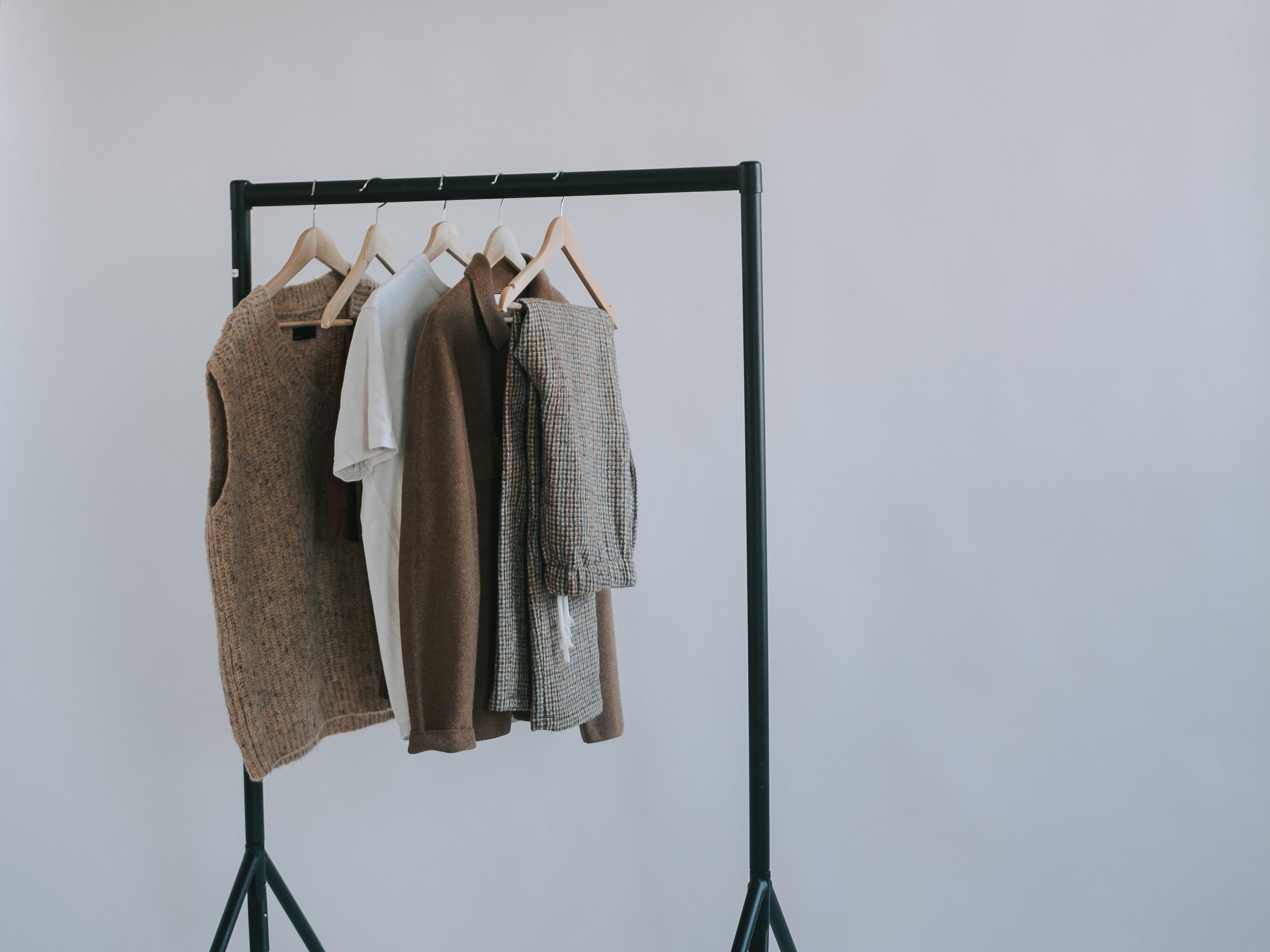Sustainable Fashion: Building an Eco-Friendly Wardrobe

If I were to ask you right now, 'where was your shirt made?' would you be able to give me an answer? You can simply curl up the hem, check the label and reply. But that would be cheating. You might also ask me the same question but I've got news for you buddy boy, I have my own shirt brand so I know exactly where mine are made.
Knowing where your clothes are made and understanding ethical practices within that country or manufacturing facility is just one small step towards building a sustainable wardrobe. It's not a tall ask that someone takes time to make your clothes and you should take the time to make conscious choices to reduce the environmental and social impact of your clothing. Here are steps to help you get started:
Assess Your Current Wardrobe
- Take stock of what you already own.
- Donate or sell items you no longer wear or need.
Before sending your hand me downs to the charity shop, ask your friends or your family members if they would like them? It's not always the answer to fill up the charity stores with garments. You can also organise second hand collections through companies like Traid.
Educate Yourself
- Learn about sustainable and ethical fashion practices.
- Understand fabric materials, production processes, and their impact.
So what is Organic Cotton? What is organic yoghurt? What is organic underwear? Who knows. It's such a nebulous term and the truth is no one really knows the meaning. Accept they do, actually. If you do a bit of reading on blogs like organic cotton plus.
Quality Over Quantity
- Invest in high-quality, timeless pieces that last longer.
- Prioritise versatile items that can be mixed and matched.
So we have all been guilty of doing huge videos on shopping hauls. Although I don't think I've done anything like that in a while. It's all a bit crass these days to publish videos of huge spending sprees in the cost of living crisis. And by the way, anyone can do a 'haul' from TK MAXX as all the garments cost under a fiver.
Choose Sustainable Fabrics
- Opt for natural, organic, or recycled materials like organic cotton, Tencel, or hemp.
- Avoid synthetic materials like polyester whenever possible.
That said. Lululemon do a lot of athleisure wear in lycra and poly blends, and they can survive nuclear winters. One of the biggest components of shopping, is to buy with intent. See yourself wearing these garments countless of times. Not just for one-offs.
Secondhand Shopping
- Explore thrift stores, consignment shops, and online resale platforms.
- Buying secondhand reduces demand for new clothing production.
Oh it's my favourite thing to do. Also if you join a community of second hand shoppers, then it's more fun. For example the James Bond community has a hashtag called #ThriftingForBond where they find all the hidden James Bond gems that have been donated to charity. From books to clothes, it's actually a better hobby than shopping, it's treasure hunting.
Support Sustainable Brands
Research and choose brands committed to sustainability and ethical practices. I'm going to list some brands here but feel free to do your own homework.
Patagonia: Patagonia is a pioneer in sustainable outdoor apparel. They prioritise using eco-friendly materials and support various environmental initiatives.
Ecoalf: Ecoalf focuses on creating clothing and accessories from recycled materials, including ocean plastics and discarded fishing nets.
Veja: Veja is known for its eco-friendly sneakers made with sustainable materials and fair labor practices.
Outerknown: Founded by professional surfer Kelly Slater, Outerknown emphasises ethical manufacturing and sustainable materials in its men's clothing.
Nudie Jeans: Nudie Jeans is committed to organic denim production and offers free repair services for its jeans.
Pact: Pact offers a range of sustainable basics, including organic cotton underwear and loungewear for men.
Tentree: Tentree is known for its commitment to reforestation, and they use sustainable materials in their clothing.
Rothy's (for shoes): While initially known for women's shoes, Rothy's expanded into men's footwear, offering sustainable and recycled materials.
Taylor Stitch: Taylor Stitch creates durable and classic men's clothing using eco-friendly fabrics and a commitment to repairability.
Fairphone (for tech accessories): If you're looking for sustainable tech accessories like phone cases, Fairphone offers ethically sourced options.
Look for certifications like Fair Trade or GOTS (Global Organic Textile Standard).
Minimalistic Approach
- Consider adopting a minimalist mindset; buy only what you truly need and love.
- Embrace a capsule wardrobe with a small, curated selection of clothing.
Also make sure you show off a small wardrobe to your kids, nieces and nephews. Tell them they don't need to buy shiny new things every five minutes in order to feel good. Have your jeans and shirts on rotation so they all get the same amount of game time in the wild.
Repair and Upcycle
- Learn basic sewing skills to mend and repair clothing.
- Get creative and upcycle old garments into new styles.
Dry cleaners can work wonders. Before you look to throw anything away take the garments down to the dry cleaners and ask them to perform a miracle, they often do. Failing that you can always use them as rags for cleaning up cat puke. In the event of following through when you thought it was safe to trust a fart, simply bin those. Somethings are beyond saving.
Care for Your Clothes
- Follow care instructions to extend the lifespan of your garments..
- Wash items in cold water and air dry when possible to save energy.
On dry cleaners. I spoke recently to the head of retail down at Turnbull & Asser and he said he has 260 shirts, none of them have ever seen the inside of a dry cleaner. Put on a 40 or 30 wash, and if you have to get them pressed then so be it. But a lot of shirts get ruined at dry cleaners, its the one thing they don't often tell you and why would they.
Recycle Responsibly
- When it's time to let go of clothing, recycle or donate it.
- Some brands offer recycling programs for their products.
EDITOR'S TIP: For you Londoners, there is a new kid on the block called Neem London, they have a take back program. Send them your unwanted, 100% cotton or 100% wool, items and they’ll recycle them into new garments. You’ll get a warm feeling inside, plus a £30 discount coupon to spend on your next Neem order over £100.
Avoid Fast Fashion
- Steer clear of fast fashion brands that prioritise cheap, disposable clothing.
- Be mindful of impulse buying and trend-driven purchases.
I think we all know the bad crop don't we? There is no such thing as a trend when you're looking to buy classic staples.
Mindful Consumption
Before purchasing, ask yourself if the item aligns with your values and lifestyle.
Consider the "30 wears" rule – if you can't see yourself wearing it at least 30 times, think twice.
Perhaps start a spreadsheet on the clothes you wear and the amount of times you wear them. But don't show your girlfriend, she'll have you committed.
Building a sustainable wardrobe is a gradual process. Start by making small changes and continue to educate yourself on sustainable fashion practices. Your choices can have a positive impact on both the environment and the ethical treatment of garment workers.
Founder of this eponymous blog, focusing on men's fashion & lifestyle.








